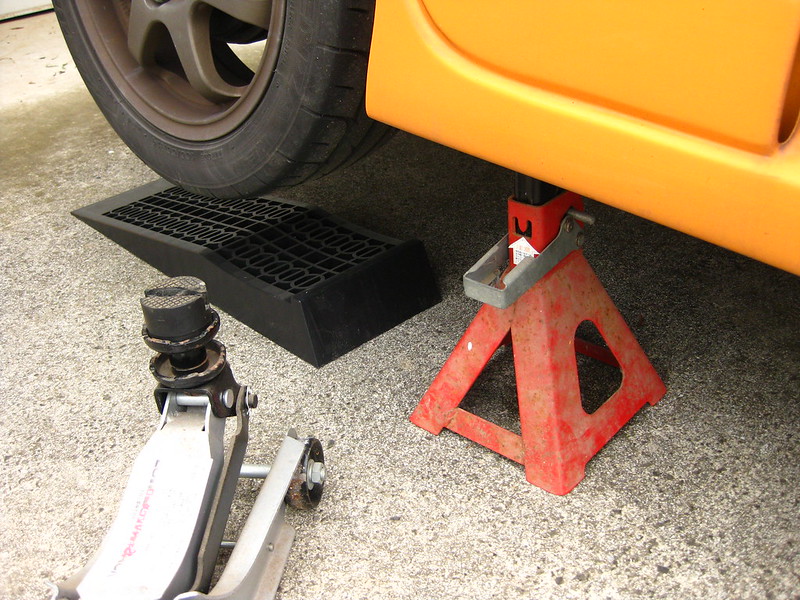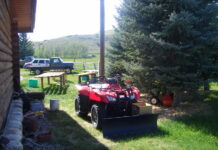
Maintaining a truck is crucial for maximizing its lifespan and keeping it in tip-top condition. There are several maintenance items that truck owners should keep in mind for optimal performance and safety on the road.
Here are 10 essential maintenance items for your truck that you mustn’t overlook:
| 1. Regular oil changes to avoid engine damage and improve fuel efficiency. |
| 2. Brake system checks to ensure proper functioning and prevent accidents. |
| 3. Inspection and replacement of tires to avoid blowouts and tread wear. |
| 4. Air filter replacement to maintain clean air flow and engine efficiency. |
| 5. Battery maintenance to avoid unexpected breakdowns and starting issues. |
| 6. Transmission fluid and filter replacement to prevent transmission issues. |
| 7. Regular coolant checks and replacement to avoid overheating and engine damage. |
| 8. Windshield wiper replacement for clear visibility during harsh weather conditions. |
| 9. Regularly checking and replacing spark plugs to avoid engine misfires. |
| 10. Visual inspections to spot potential issues early and take preventive measures. |
Tire Pressure
Maintaining proper tire pressure is crucial for any truck owner. Not only does it improve fuel efficiency, but it also ensures maximum safety and ensures the longevity of your tires, especially if you tow a travel trailer with 22.5 RV tires.
Here are some key things to keep in mind:
- Check your tire pressure regularly, ideally once a week or before any long trips.
- Use a tire pressure gauge to ensure your tires are inflated to the manufacturer’s recommended pressure level.
- Overinflated or underinflated tires can cause uneven wear, poor handling, and blowouts, so make sure your tires are properly inflated.
- Factor in the weight you will be carrying in your truck when inflating your tires.
- Avoid overloading your truck, which can put unnecessary stress on your tires.
- Finally, keep a spare tire on hand, along with a tire jack and lug wrench, in case of emergencies.
Pro tip: Investing in a tire pressure monitoring system is a great way to keep an eye on your tire pressure levels in real-time and receive alerts if they fall below a safe level.
Oil Checks
Oil checks are an essential maintenance item on a truck to ensure that the engine runs smoothly and prolong its lifespan. Checking your oil levels regularly can help identify any problems before they lead to costly repairs down the line.
Here are some key points to keep in mind:
| Check your oil levels every 1,000 miles or so, especially if you frequently drive in dusty or dirty conditions. |
| Make sure your truck is parked on level ground and turned off for at least 10 minutes before checking the oil. |
| Pull out the dipstick, wipe it clean with a cloth or paper towel, and reinsert it fully. |
| Pull out the dipstick again and check the oil level against the indicators. |
| If the oil level is low, add the necessary amount of oil but make sure not to overfill it. |
| Make sure to use the recommended type of oil for your truck to keep its engine running smoothly. |
Pro tip: Regular oil checks can save you a lot of money in the long run by identifying problems before they become major issues.
Coolant Levels
Monitoring and maintaining proper coolant levels is crucial for the performance and longevity of your truck, as it helps regulate the engine temperature and prevent overheating. Here are some important things to keep in mind regarding the coolant levels of your truck:
| Check the coolant levels regularly and add more coolant as needed to maintain the recommended level. |
|---|
| Make sure to only add the same type of coolant that is currently in the system, as different types can react negatively with each other and cause damage. |
| If the coolant level is consistently low, there might be a leak in the system that needs to be identified and repaired. |
| Make sure to flush and replace the coolant according to the manufacturer’s recommendations to prevent build-up and contamination over time. |
| Proper maintenance of coolant levels can help avoid costly engine repairs and breakdowns in the future. |
Pro Tip: Check the coolant levels every time you refuel to ensure you catch any issues early on.
Air Filter Maintenance
Air filter maintenance is a crucial aspect of truck maintenance that cannot be overlooked. Neglecting air filter maintenance can lead to reduced fuel efficiency, engine overheating, and increased emissions. Here are a few tips for maintaining your truck’s air filter properly:
| 1. Check the air filter regularly and replace it every 12,000 to 15,000 miles or as recommended by the manufacturer. |
| 2. Consider replacing the air filter more frequently if you drive in dusty or off-road conditions. |
| 3. Clean the air filter housing regularly and remove any debris or dirt. |
| 4. Use a high-quality air filter for maximum performance and longevity. |
| 5. Don’t ignore any dashboard warning lights related to the air filter. Get your truck serviced as soon as possible. |
Proper cold air intake maintenance is an easy and cost-effective way to extend the life of your truck and improve its performance.
Pro Tip: Keep a spare air filter in your truck for quick and easy replacement in case of an emergency on the road.
Fuel System Maintenance
Fuel system maintenance is a critical aspect of maintaining your truck’s performance and longevity. Here are the top 10 maintenance items to keep your truck’s fuel system in optimal condition:
| Item | Maintenance |
|---|---|
| 1. Fuel filters | Replace the fuel filters according to the truck’s maintenance schedule. |
| 2. Clean fuel tank | Remove any debris or sediment in the fuel tank that could clog the filters or injectors. |
| 3. Fuel injectors | Have the fuel injectors cleaned regularly to prevent clogging. |
| 4. Fuel lines | Inspect fuel lines and hoses for cracks or leaks and replace as necessary. |
| 5. Fuel pump | Check the fuel pump for proper pressure and operation. |
| 6. Air filters | Replace the air filters to improve airflow and fuel efficiency. |
| 7. Fuel additives | Use fuel additives to keep the fuel system clean and improve efficiency. |
| 8. Fuel pressure regulator | Replace the fuel pressure regulator if it fails to maintain optimal pressure. |
| 9. Gas cap | Replace the gas cap if it is loose, missing or broken to prevent fuel vapor leaks. |
| 10. Fuel gauge | Keep the fuel gauge in good working order to avoid running out of fuel and straining the fuel system. |
Pro Tip: Regular fuel system maintenance is essential to keep your truck running smoothly and safely. Make sure to follow the manufacturer’s recommended maintenance schedule and keep a log of all maintenance performed.
Brake System Maintenance
Brake system maintenance is essential for the safety and longevity of your truck. Here are the 10 critical maintenance items to ensure your truck’s brake system is in top working condition:
| Item | Maintenance |
|---|---|
| Brake Pads | Check for signs of wear and tear and replace as necessary. |
| Brake Rotors | Inspect for thickness and wear, and replace if below the manufacturer’s specifications. |
| Calipers | Check for leaks and ensure that they are in good working order. |
| Brake Lines & Hoses | Inspect for leaks and replace if damaged or worn out. |
| Brake Fluid | Check for contamination and ensure that the brake fluid is at the correct level. |
| Master Cylinder | Inspect for leaks and ensure that the brake fluid is flowing correctly. |
| Brackets & Hardware | Check for signs of wear and replace if necessary. |
| Wheel Bearings | Inspect for looseness and play, and adjust or replace if necessary. |
| Parking Brake | Check for proper adjustment and ensure it holds the vehicle in place. |
| Brake Warning System | Test the warning light and ensure it is working correctly. |
Remember, periodic maintenance of your rig’s brake system is crucial to avoid safety issues on the road.
Conclusion
In conclusion, proper maintenance of a truck is essential to ensure its longevity, performance, and safety on the road. Here are ten maintenance items that every truck owner should prioritize:
| Regular oil changes, air filter changes, and fluid checks | Tire maintenance, including inflation, rotation, and balance | Brakes and brake pads inspection and replacement |
|---|---|---|
| Battery performance and charging system inspection | Wiper blades and windshield washer fluids replacement | Headlights, taillights, and turn signals checks and bulbs replacement |
| Suspension and steering system inspection and alignment | Exhaust and emission tests and catalytic converter inspection | Fuel system cleaning and fuel filter replacement |
| Cab and cargo heating, cooling, and ventilation system inspection and repair |
Staying on top of these critical maintenance tasks can extend the life of your truck, save you time and money, and ensure a safe and comfortable ride.
Originally posted 2023-05-11 11:33:37.


